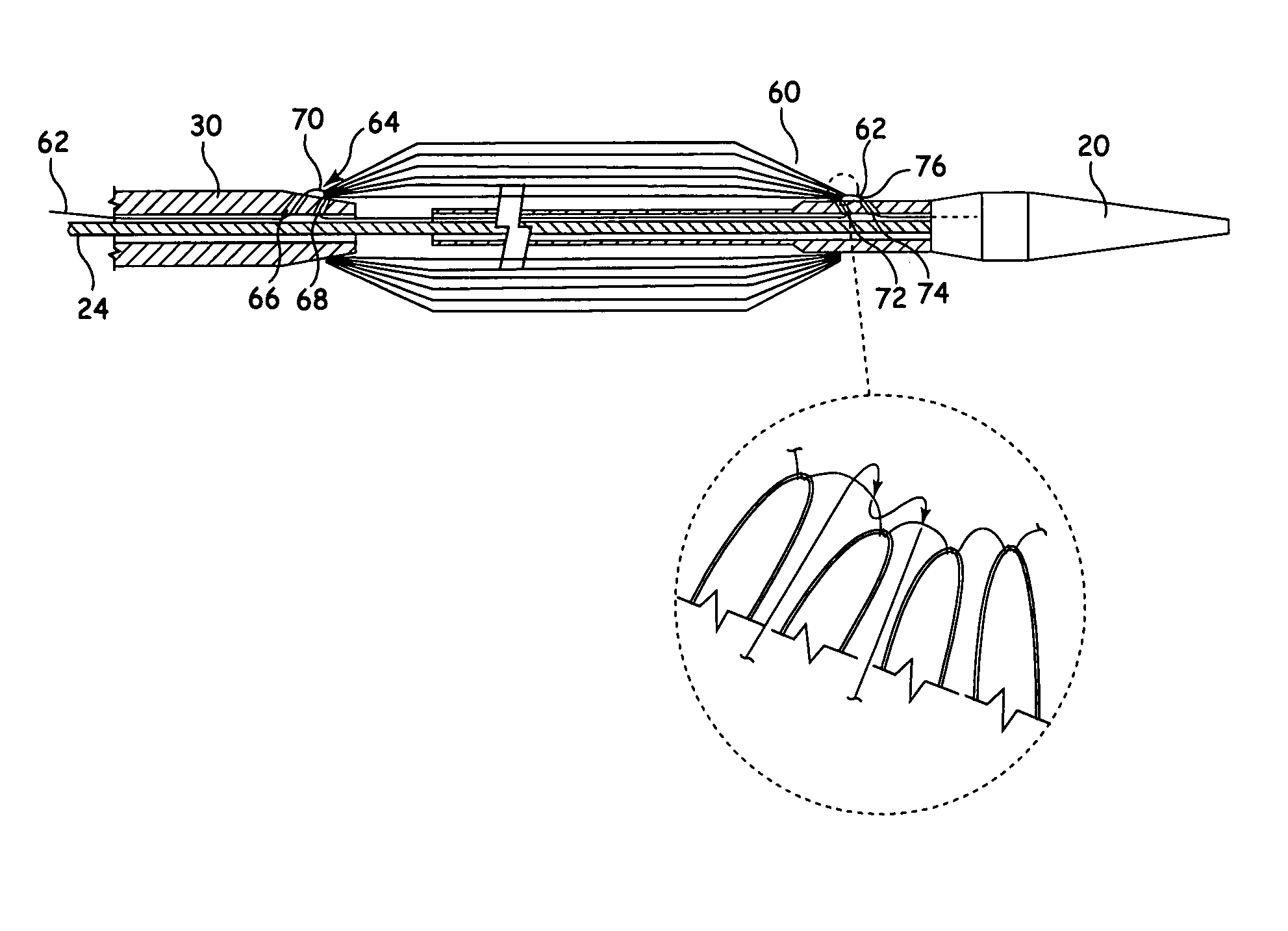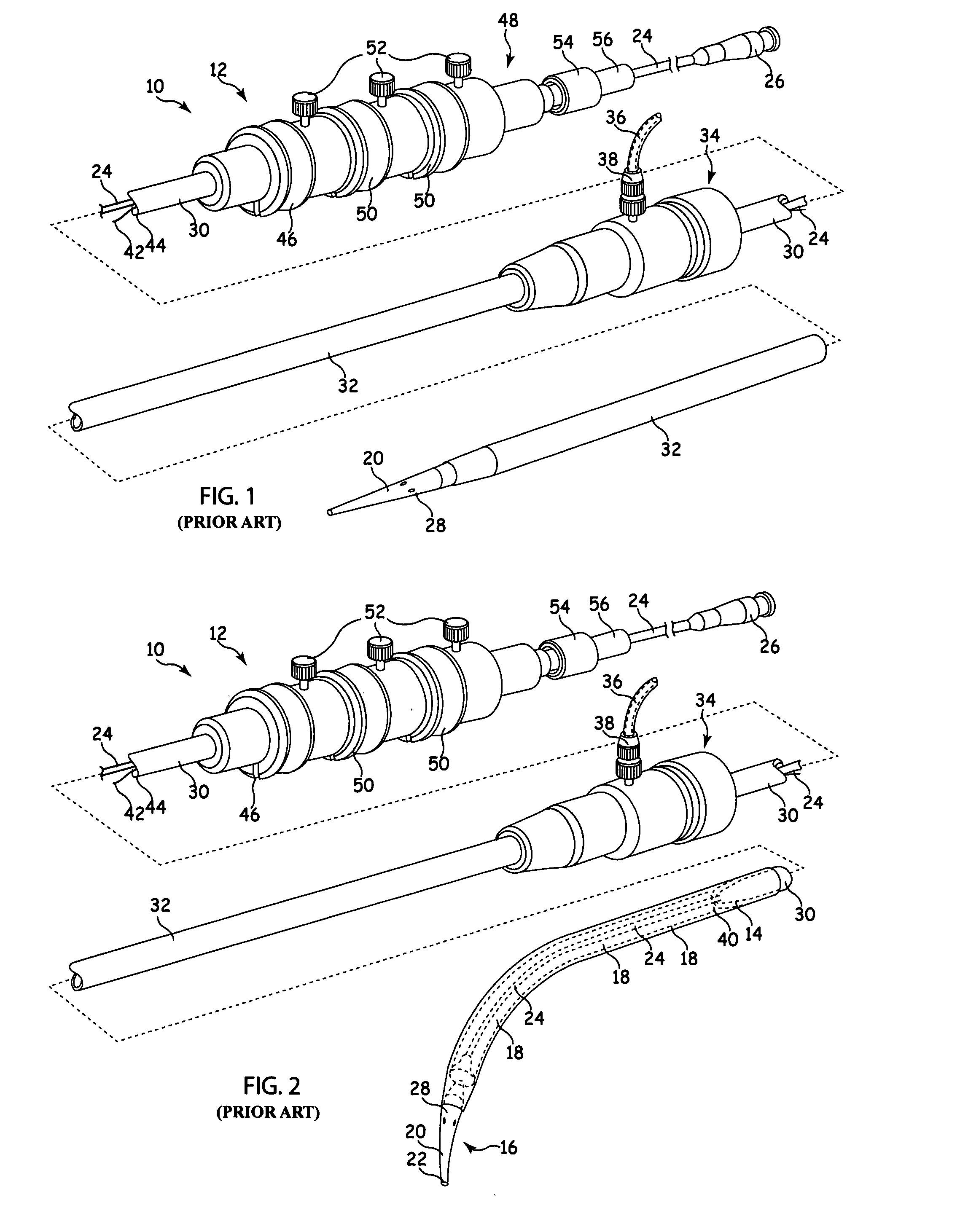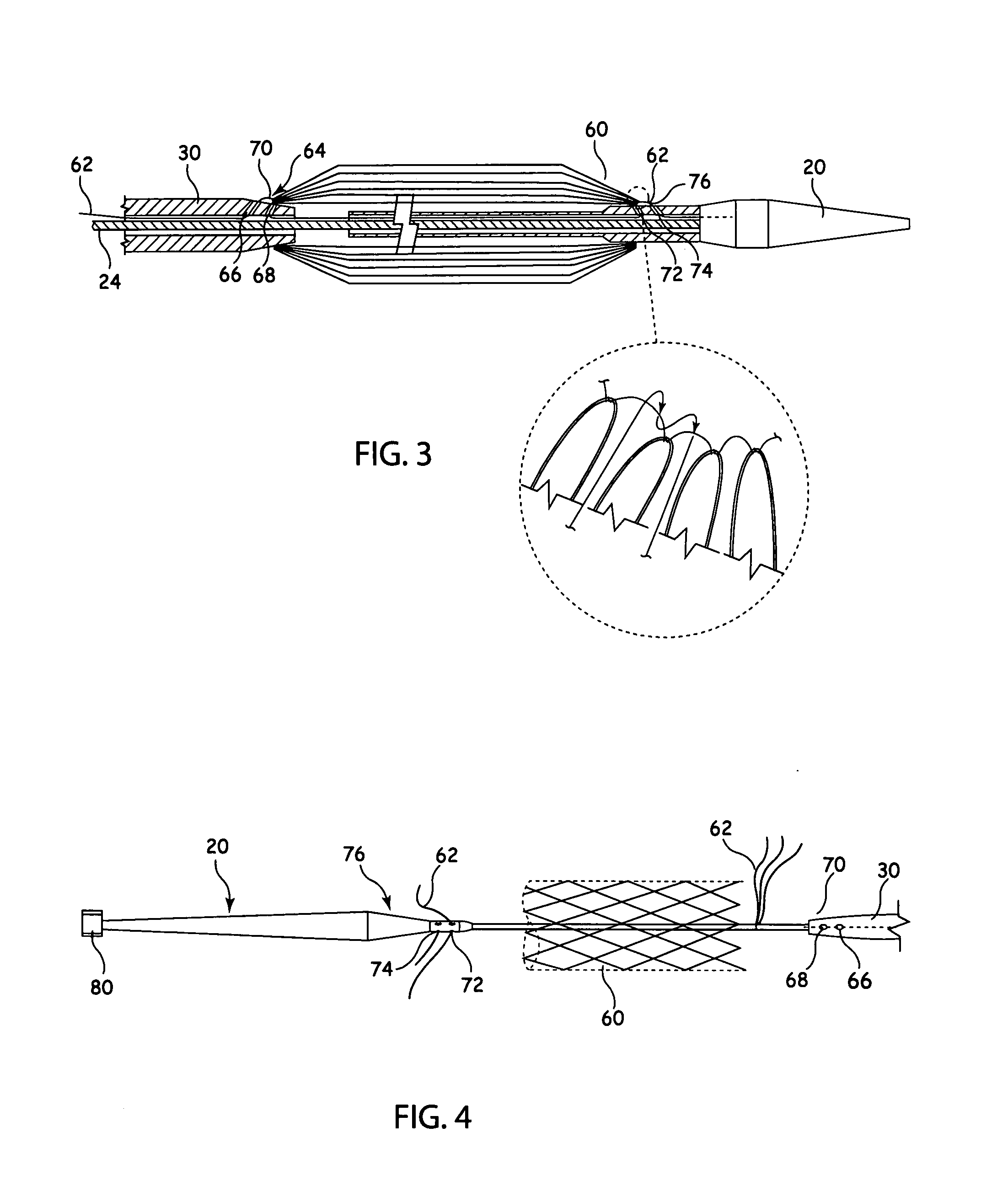Implant release mechanism
- Summary
- Abstract
- Description
- Claims
- Application Information
AI Technical Summary
Benefits of technology
Problems solved by technology
Method used
Image
Examples
Embodiment Construction
[0032]Referring to FIGS. 1 and 2, there is shown an example of known delivery device, which is useful in understanding the principles of the release mechanism taught herein. The delivery device 10, hereinafter referred to as the introducer, includes an external manipulation section 12 which is operated by a surgeon or clinician and a distal end which is introduced intraluminally into a patient. The distal end includes a distal attachment region 14 and a proximal attachment region 16. The distal attachment region 14 and the proximal attachment region 16 secure the distal and proximal ends of the implant 18, respectively.
[0033]During the medical procedure to deploy the implant 18, the distal end of the device 10 will travel through the patient's lumen to a desired deployment site. The external manipulation section 12, which is acted upon by a surgeon to manipulate the introducer, remains outside of the patient throughout the procedure.
[0034]The proximal attachment region 16 of the int...
PUM
 Login to View More
Login to View More Abstract
Description
Claims
Application Information
 Login to View More
Login to View More - R&D
- Intellectual Property
- Life Sciences
- Materials
- Tech Scout
- Unparalleled Data Quality
- Higher Quality Content
- 60% Fewer Hallucinations
Browse by: Latest US Patents, China's latest patents, Technical Efficacy Thesaurus, Application Domain, Technology Topic, Popular Technical Reports.
© 2025 PatSnap. All rights reserved.Legal|Privacy policy|Modern Slavery Act Transparency Statement|Sitemap|About US| Contact US: help@patsnap.com



